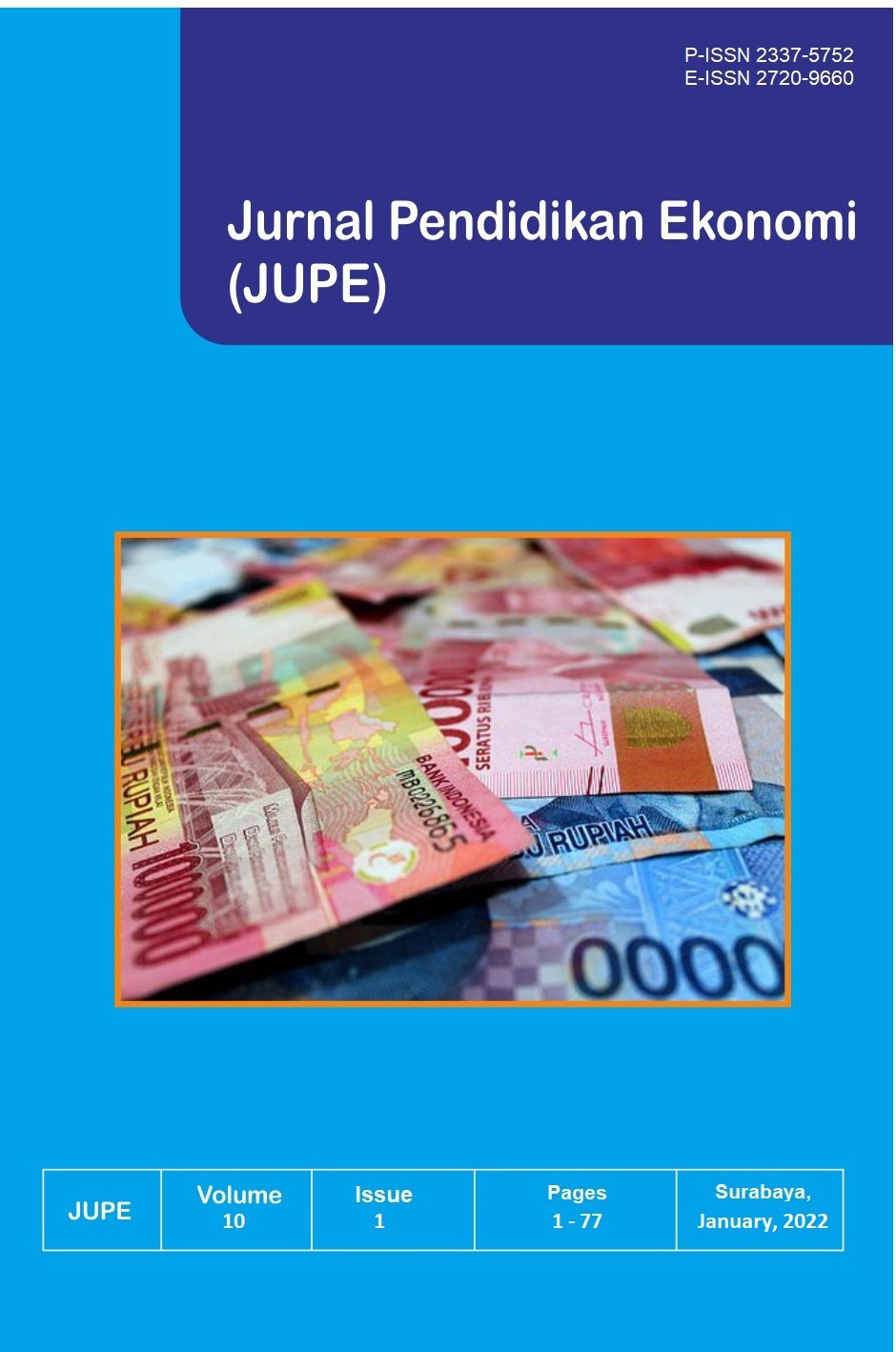Mengeksplorasi Variabel Pemediasi Hubungan Pendidikan Kewirausahaan dan Niat Berwirausaha Selama Pandemi Covid-19
DOI:
https://doi.org/10.26740/jupe.v10n1.p23-37Keywords:
entrepreneurship education, entrepreneurial intentions, risk taking, self efficacy, proactivenessAbstract
This study aims to determine the effect of entrepreneurship education on entrepreneurial intentions through risk taking, self-efficacy, and being proactive during the COVID-19 pandemic. The population in this study were students of class XI and XII majoring in office governance automation who took lessons on creative products and entrepreneurship at SMKN 1 Surabaya using 188 respondents with simple random sampling technique. Methods of data collection using a questionnaire. Analysis of the data used in this study is Structural Equation Modeling-Partial Least Square (SEM-PLS). The results obtained in this study are entrepreneurship education has no significant effect on entrepreneurial intentions, risk taking as a mediation has no significant effect between entrepreneurship education and entrepreneurial intentions, self-efficacy is able to significantly mediate the effect of entrepreneurship on entrepreneurial intentions, proactive is not able to significantly mediate the effect of education entrepreneurship to entrepreneurial intentions. The limitation of this study is that the proposed model was only tested in SMKN 1 Surabaya, students of class XI and XII majoring in office governance automation. Originality in this study is to measure the mediating variables, namely risk taking, self-efficacy, and proactiveness in the relationship between entrepreneurship education and entrepreneurial intentions.
Downloads
Downloads
Published
How to Cite
Issue
Section
License
Copyright
- Authors retain copyright and grant the journal right of first publication with the work simultaneously licensed under a Creative Commons Attribution License that allows others to share the work with an acknowledgment of the work's authorship and initial publication in this journal.
 Abstract views: 572
,
Abstract views: 572
, PDF Downloads: 540
PDF Downloads: 540











